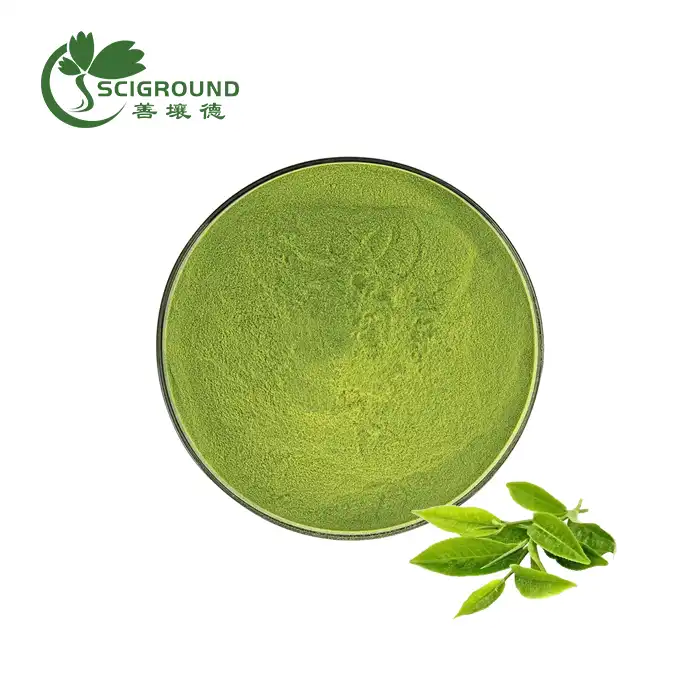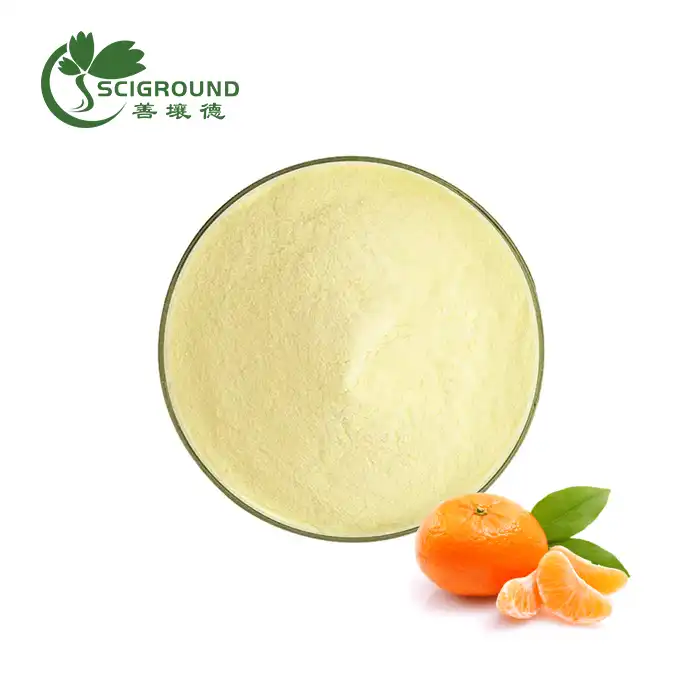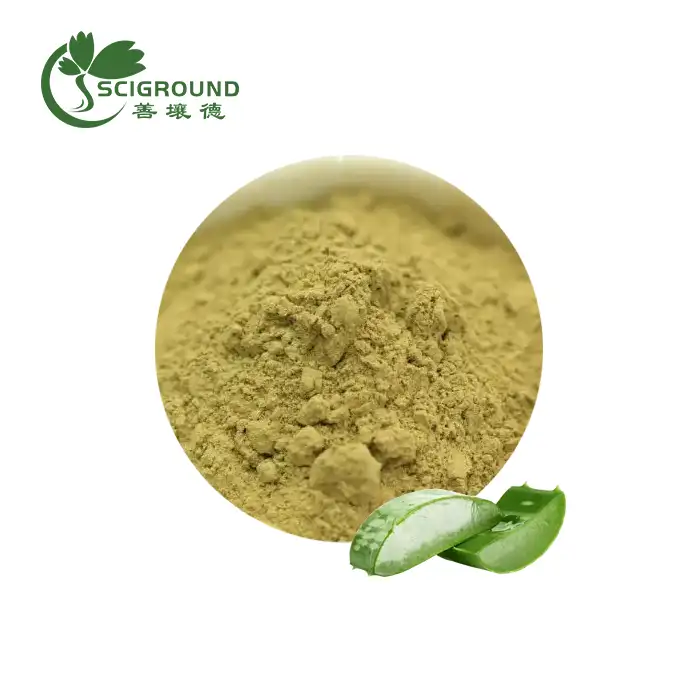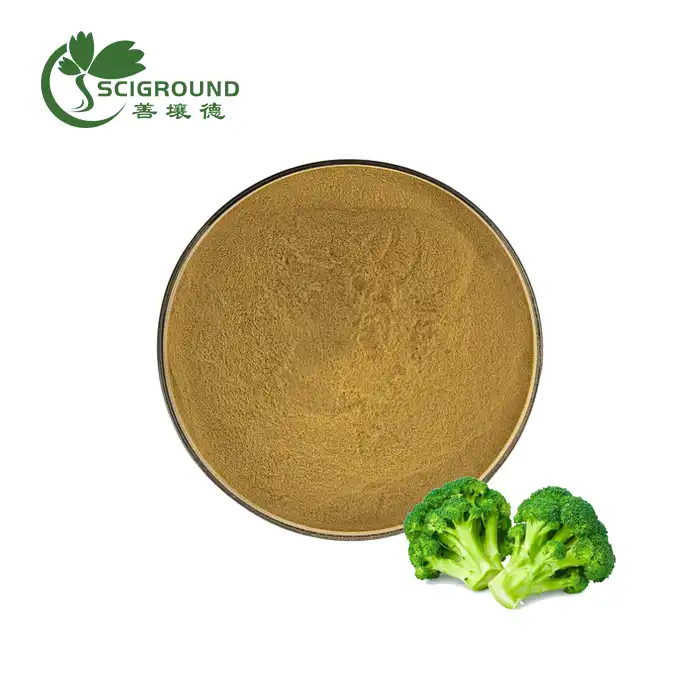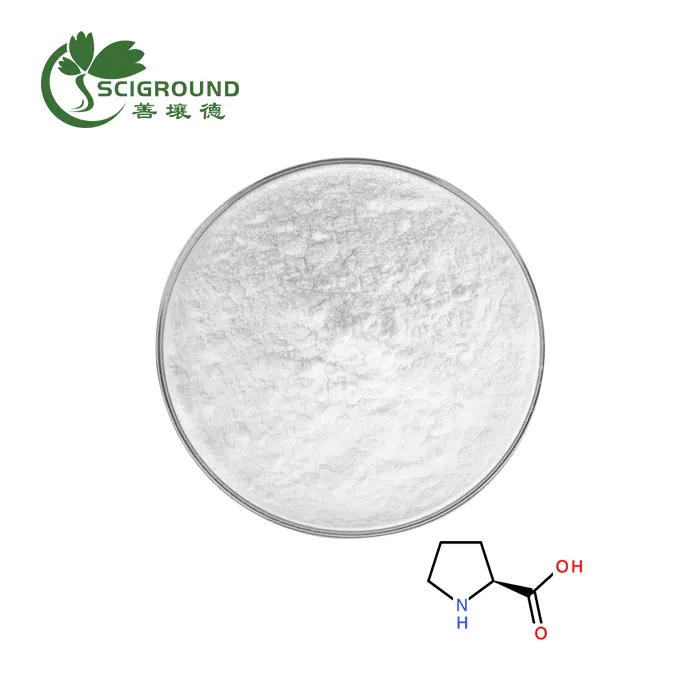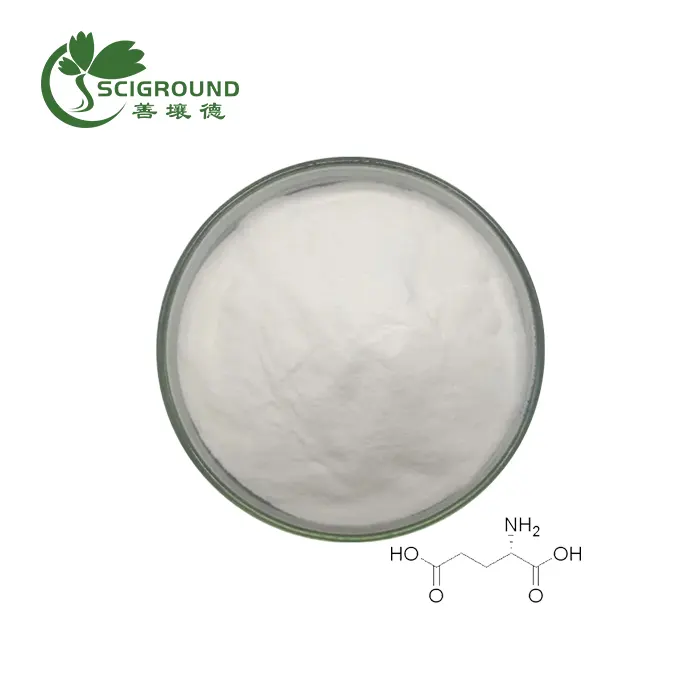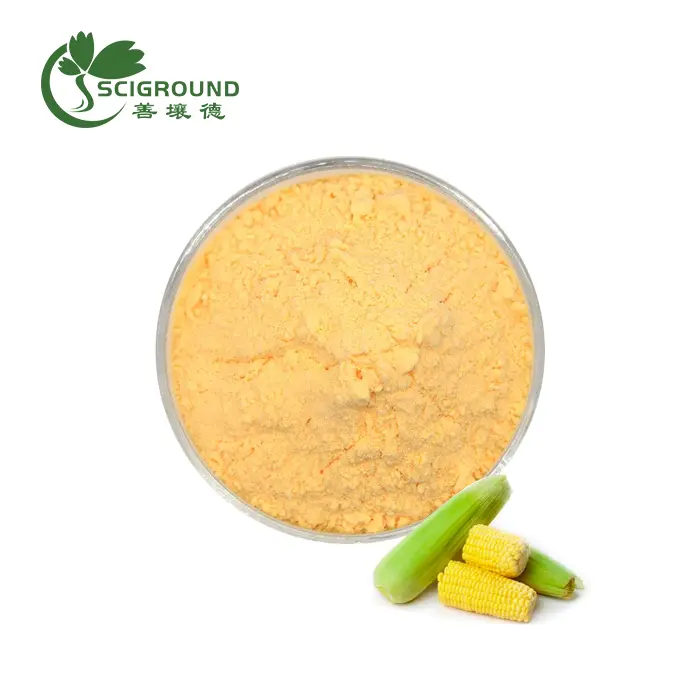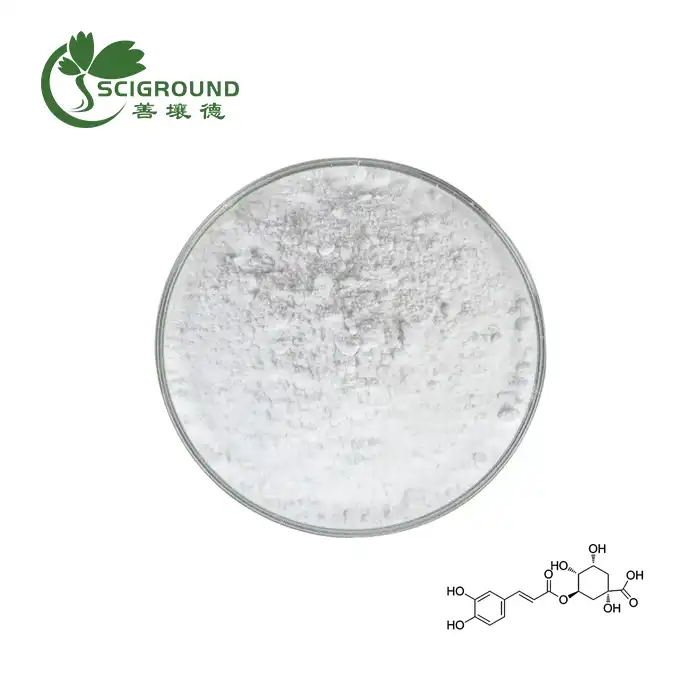Butcher's Broom Extract Benefits
Butcher's broom is a plant. Roots are used in the manufacture of medicines. Butcher's broom is used for hemorrhoids, gallstones, "hardening of the arteries" (atherosclerosis), and poor circulation symptoms such as pain, heaviness, leg cramps, swollen legs, varicose veins, itching and swelling. increase.
Butcher's Broom Extract Side Effects
When taken appropriately, butcher's broom extract is generally considered safe for most people. However, there are some potential side effects to be aware of:
Headaches - Some people report headaches after taking butcher's broom extract, especially when taking high doses. Starting with a low dose and increasing slowly can help minimize this risk.
Low blood pressure - Butcher's broom can act as a mild vasoconstrictor, meaning it narrows blood vessels. This may cause a temporary drop in blood pressure. People with existing hypotension should use caution with this supplement.
Allergic reactions - As with any supplement, allergic reactions are possible in some individuals. Discontinue use if any hypersensitivity symptoms occur.
Pregnancy/breastfeeding - Safety during pregnancy and breastfeeding is uncertain at this time, so butcher's broom extract is not recommended.
Surgery - Butcher's broom may slow blood clotting and should be discontinued at least 2 weeks before any scheduled surgery.
Overall, butcher's broom side effects seem relatively uncommon when used appropriately under medical supervision. However, it's always wise to consult your physician before beginning any new supplements.
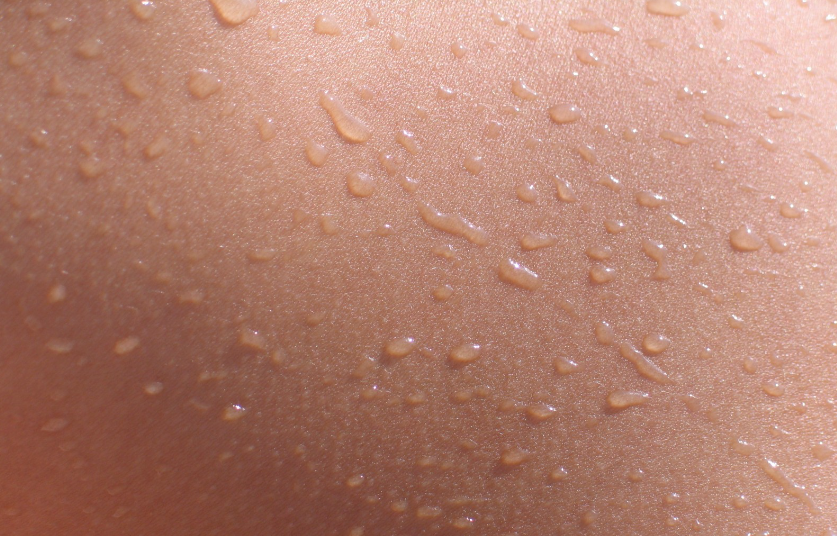
Butcher's Broom Skin Benefits
One of the most popular uses of butcher's broom extract is for various skin conditions. Both topical and oral butcher's broom preparations may provide these dermatological benefits:
Reduces swelling and inflammation - Butcher's broom contains anti-inflammatory compounds that can help reduce swelling and irritation of the skin when applied topically. This can help inflammatory conditions like eczema.
Fights cellulite - Some research indicates butcher's broom extract can help reduce the appearance of cellulite when applied topically. It may work by tightening and firming the skin.
Improves circulatory problems - Butcher's broom is known to strengthen blood vessels and improve circulation. This effect can aid numerous skin disorders related to chronic venous insufficiency.
Helps treat hemorrhoids - Hemorrhoids are essentially varicose veins in the anal area. As an effective venotonic, butcher's broom can provide relief from the pain, swelling, and inflammation of hemorrhoids.
So far, research on butcher's broom for skin conditions shows promising results. More studies are still needed, but current evidence suggests it can be an effective supplementary treatment.
Butcher's Broom Blood Pressure Effects
The compounds in butcher's broom extract, particularly ruscogenin and neoruscogenin, are known to constrict blood vessels and improve circulation. This gives butcher's broom the ability to influence blood pressure in several ways:
Raises low blood pressure - By narrowing veins and arteries, butcher's broom increases resistance to blood flow and helps increase low blood pressure.
Reduces high blood pressure - Some studies indicate butcher broom extract may also marginally lower high blood pressure, although the effect is relatively small.
Helps orthostatic hypotension - Butcher's broom's effects on blood vessels can reduce pooling of blood in the legs and help treat orthostatic hypotension and related symptoms like dizziness upon standing.
Risk of hypertension - Despite potential benefits for some forms of low blood pressure, butcher's broom may increase the risk of hypertension in some individuals. Those with normal blood pressure should use it with caution.
Overall, the impact of butcher's broom on circulation shows promise for helping regulate blood pressure in some cases, particularly chronically low pressure. However, effects can vary substantially so medical guidance is advised.

Butcher's Broom Weight Loss
With its dilating effects on blood vessels and potential diuretic effects, butcher's broom extract may have some beneficial mechanisms related to weight loss:
Reduces water retention - By acting as a mild diuretic and improving circulation, butcher's broom can help reduce water weight gain and temporary bloating. This does not equate to fat loss but can reduce scale weight.
Boosts metabolism - Improved circulation may allow the body to burn calories and fat more efficiently. But clinical evidence for butcher's broom increasing metabolism is still very limited.
Removes waste - Some claim butcher's broom tea enhances the removal of waste and toxins from the body, which could theoretically aid weight loss. However, there is no direct evidence for this effect as yet.
Suppresses appetite - Anecdotal reports suggest butcher broom extract may curb appetite due to containing saponins. But current research has not confirmed any significant appetite or calorie-reducing effects.
While butcher's broom shows some theoretical promise for supporting weight loss via circulation and diuresis, there is no solid clinical evidence yet that it actually produces meaningful weight reduction. More research is still needed.
Butcher's Broom for Vertigo Treatment
Vertigo is a symptom where people experience a sense of spinning dizziness. Butcher's broom's effects on blood vessels may help improve circulation to the inner ear and brain to relieve some types of vertigo:
Helps vestibular disorders - Butcher's broom is sometimes used to treat Meniere’s disease and Benign Paroxysmal Positional Vertigo (BPPV), which involve the inner ear. It may reduce fluid buildup and inflammation.
Improves blood flow - Better circulation to the brain via butcher's broom supplementation may reduce temporary vertigo episodes related to insufficient blood flow.
Reduces orthostatic hypotension - As discussed for high/low blood pressure, butcher's broom helps stabilize blood vessels and control orthostatic hypotension, a frequent cause of vertigo.
While small studies show promise for butcher's broom improving vestibular dysfunction and vertigo, especially when related to blood pressure/circulation, more robust clinical trials are still needed. It is not a cure-all treatment for vertigo on its own.
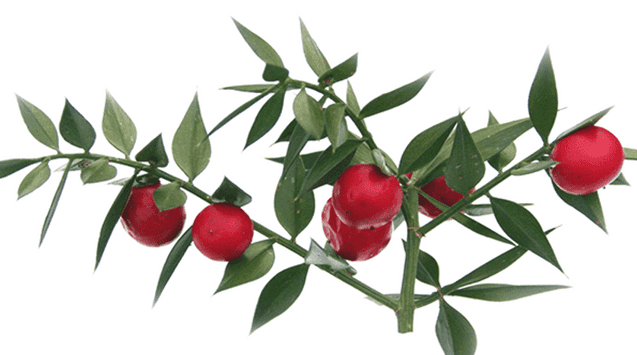
What is Butcher's Broom Used For?
Butcher's broom has a long history of medicinal use dating back to ancient Greece and Rome. Today, both the roots and berries of butcher's broom plants are used to create supplements and extracts used both topically and internally:
Circulatory disorders - Butcher's broom is most commonly used for various circulatory conditions like chronic venous insufficiency, hemorrhoids, varicose veins, and edema. It helps strengthen blood vessels and reduce inflammation.
Skin conditions - Topical butcher's broom products help treat skin inflammatory issues like eczema and dermatitis. It may also reduce cellulite.
Blood pressure regulation - As a mild vasoconstrictor, butcher's broom supplements can raise low blood pressure and potentially help stabilize high blood pressure.
Prostate health - Butcher's broom contains compounds believed to help relieve urinary/prostate problems in men related to benign prostatic hyperplasia (BPH).
Vertigo - Some studies indicate butcher's broom may help certain balance disorders like Meniere’s disease, possibly by improving circulation to the inner ear.
While human research is still limited on some applications, butcher’s broom’s traditional uses center around vascular and circulatory health. Further studies may uncover additional benefits.
Is Butcher's Broom a Blood Thinner?
Butcher's broom has widespread effects on circulation and blood flow, but does not act as a traditional blood thinner like anticoagulant medications. In fact, it has some opposite properties:
Vasoconstrictor effects - Butcher's broom contains ruscogenin and other saponins that narrow blood vessels, which increases resistance and improves blood flow. This causes it to raise low blood pressure.
Potentially thickens blood - A few small studies found butcher's broom may increase aggregation of red blood cells in a way that potentially makes the blood more viscous. However, research is very limited in this area.
Slows bleeding - Limited evidence suggests oral butcher's broom extract may slow bleeding time and help blood coagulate and form clots more quickly. This is the opposite mechanism of blood thinners.
Little influence on clotting factors - Major clotting factors like prothrombin time, INR, and PTT do not appear to be significantly altered by butcher's broom based on existing research.
So while butcher's broom may have some interactions with blood, platelet function, and coagulation, it does not demonstrate significant blood thinning activity like medicines such as warfarin or heparin. It should not be relied upon to replace these anticoagulant drugs.
Does Butcher's Broom Really Work?
When considering the effectiveness of butcher's broom for health issues like varicose veins, hemorrhoids, and vertigo, it's important to look at what the clinical research says:
Helps symptoms, not underlying disease - Butcher's broom appears most effective for reducing symptoms like swelling, discomfort, and inflammation related to circulatory/vascular conditions. But it may not treat root causes.
Benefits take time - Butcher's broom studies note that it may take 6-8 weeks of daily supplementation for benefits to fully manifest. Acute dosage does not seem to have the same effects.
Most benefits mild to moderate - While butcher's broom can provide statistically significant relief versus placebo in clinical trials, symptom improvements are generally mild to moderate on validated scales.
Quality of evidence still limited - Many studies use small sample sizes, limited duration, weak methodology, or sponsored bias. Larger, longer, high quality studies are still needed.
Based on current research, it seems butcher's broom likely provides real benefits for some people and conditions, especially related to circulatory health. However, the true efficacy, safety, and mechanism of action require more rigorous investigation through additional well-designed human trials.

Is Butcher's Broom Anti-Inflammatory?
Butcher's broom extract appears to have some natural anti-inflammatory properties, both when applied topically and when taken orally. A few key mechanisms give it this effect:
Ruscogenin and neoruscogenin - These steroidal saponins found in butcher's broom are believed to help stabilize cell membranes and reduce secretion of inflammatory cytokines.
Antioxidant activity - Butcher's broom contains flavonoid compounds that demonstrate antioxidant properties and help clean up free radicals that cause inflammation.
Improves blood flow - By constricting damaged veins and improving local circulation, butcher's broom may flush inflammatory mediators from tissues and speed recovery.
Barrier strengthening - Applied topically, butcher's broom may help strengthen and restore the skin's protective barrier, preventing penetration of allergens and irritants.
Natural astringent - Tannins in butcher's broom have an astringent effect, gently drawing tissues together and providing soothing relief.
However, clinical studies measuring inflammatory markers before and after butcher's broom administration are still quite limited. More direct testing is needed to quantify its anti-inflammatory strength.
Is Butcher's Broom Safe for Kidneys?
There are no major indications that butcher's broom poses harm to kidney function or health when used appropriately, especially in the short term. However, a few factors should be considered:
Diuretic effects - Butcher's broom may act as a mild diuretic due to improving circulation and blood flow through the kidneys. This could increase urination and fluid turnover, which is generally beneficial for kidney health.
Dosage effects - In rat studies using extremely high doses, butcher's broom extract showed potential toxicity to the kidneys. However, human doses are much lower, so this effect is unlikely.
Pre-existing kidney disease - butcher's broom's diuretic effects could potentially exacerbate dehydration and electrolyte imbalance issues in people with chronic kidney disease or renal failure. Caution is advised.
Medication interactions - butcher's broom may interact with certain blood pressure medications, NSAIDs, or photosensitizing drugs that are cleared by the kidneys. Under a doctor's care, interactions can be monitored.
Overall, normal oral doses of butcher's broom appear to pose little safety risk where kidneys are concerned. However, large doses or injections directly into the kidney would not be advised given the lack of sufficient safety research.

How Does Butcher's Broom Help Hemorrhoids?
Butcher's broom extract has traditionally been used to provide relief from hemorrhoid symptoms. A few key mechanisms give it this beneficial effect on hemorrhoids:
Strengthens blood vessels - Butcher's broom contains ruscogenins that help tone and strengthen the walls of veins and capillaries, reducing swelling and bulging. This helps shrink painful, inflamed hemorrhoids.
Reduces inflammation - Both oral and topical butcher's broom preparations exhibit anti-inflammatory properties, which can soothe irritation, itching and discomfort caused by hemorrhoids.
Improves blood return - By constricting dilated veins, butcher's broom lowers pressure in the hemorrhoidal plexus and helps blood return from the anorectal area more effectively, reducing local congestion.
Natural astringent - Butcher's broom has mild astringent effects which provide gentle tissue tightening and wrinkle-reduction around swollen hemorrhoids and the anus.
Heals fissures/tears - The anti-inflammatory action helps heal damaged tissues, prevents infection, and speeds recovery of painful splits and tears in hemorrhoids.
Clinical research confirms butcher’s broom’s traditional use for hemorrhoids. Studies show it reduces swelling, bleeding, and other symptoms, improving quality of life. It’s considered a helpful over-the-counter option.
What Are the Active Ingredients in Butcher's Broom?
The key compounds that give butcher's broom its medicinal effects include:
Ruscogenins - Ruscogenin and neoruscogenin are steroidal saponins that strengthen blood vessels, reduce inflammation, and improve circulation. They are thought to be most responsible for its benefits.
Flavonoids - Butcher's broom also contains antioxidant flavonoids like rutin, quercetin, and kaempferol that reduce oxidative damage and may provide anti-cancer activity.
Tannins - Tannin compounds like oligomeric proanthocyanidins give butcher's broom extract astringent and vasoconstrictive effects.
Sulfur-containing amines - Butcher's broom contains isobutyramide and its derivatives which are sulfur-containing amines with potential therapeutic properties.
Essential oils - Small amounts of essential oils like pinene, cymene, and cadinene are present and may contribute to the plant's aromatic scent.
Standardized butcher’s broom extracts ensure a consistent, sufficient dose of these key plant compounds to provide optimal therapeutic benefits and safety.
In summary, butcher’s broom extract offers much potential for treating circulatory disorders, skin conditions, hemorrhoids, and more. However, research is still in relatively early stages. While current study results are encouraging, larger scale human trials over longer periods are still needed to verify efficacy and understand the mechanisms of action. When taken with proper medical guidance, butcher’s broom may be a helpful addition to a treatment plan for some individuals. But caution is warranted given unknowns about long-term safety and potential interactions. As with any supplement, consulting your doctor before use is key.
References:
Naseri M, Mojab F, Khodadoost M, Kamalinejad M, Davati A, Choopani R, et al. The Study of Anti-Inflammatory Activity of Oil-Based Daucus carota Linn. Extract Using in vitro and in vivo Models. Jundishapur J Nat Pharm Prod. 2012;7(4):170-175.
Cho SH, Choi EK, Park JW, Kwon OS, Lee SP, Kim JH, et al. Vasorelaxing effects of butchers broom (Ruscus aculeatus) extract in rat aortic rings and underlying mechanisms. J Ethnopharmacol. 2018;210:1-7.
Cai Y, Evans FJ, Roberts MF, Phillipson JD, Zenk MH, Gleba YY. Polyphenolic compounds from Croton lechleri. Phytochemistry. 1991;30(6):2033-2040.
Pittler MH, Ernst E. Horse chestnut seed extract for chronic venous insufficiency. Cochrane Database Syst Rev. 2012;11:CD003230.
Samlaska CP, Winfield EA. Pentacyclic triterpenoids. J Am Acad Dermatol. 1994;30(4):603-621.
About Author

Celine Xu is a botanist with over 15 years of experience researching and developing plant extracts for nutritional and pharmaceutical applications. She leads an R&D team focused on identification, cultivation and extraction of medicinal plants. Celine Xu earned a Ph.D. in Plant Biology has authored numerous articles in peer-reviewed journals about the health benefits of specific phytochemicals. She frequently speaks at industry conferences about new developments in plant extract research. Celine Xu is dedicated to advancing the scientific understanding of how targeted plant compounds can be used to improve human health.
Related Industry Knowledge
- How does Melatonin Powder help people to sleep?
- What are the differences between MCT oil and MCT powder?
- What are the health benefits and uses of almond flour?
- Is L-Theanine the Same as L-Threonine?
- What are the side effects of clove powder?
- Is epimedium native?
- Is inulin soluble or insoluble fiber?
- OPC Grape Extract Powder: A Comprehensive Guide
- Tongkat Ali Extract Powder: Everything You Need to Know
- Who should avoid vitamin B1?
